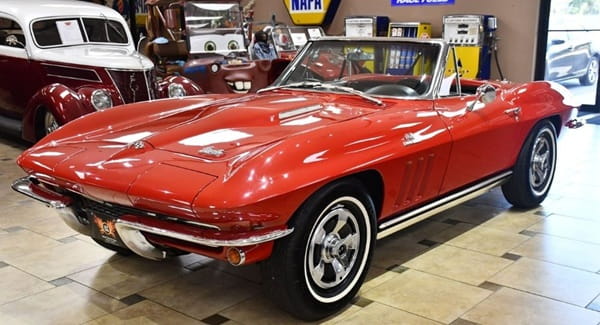Classic car restoration is more than just a hobby; it’s a growing business. Car enthusiasts and investors alike are drawn to the industry, hoping to bring vintage vehicles back to life while making a profit. Restoring classic cars requires time, skill, and a deep appreciation for automotive history.
Many people enter this market for different reasons. Some love the craftsmanship, while others see it as a way to make money. The rising demand for vintage cars has made restorations an attractive investment. But is it truly profitable?
This article explores the costs, risks, and potential returns of classic car restoration to help you decide.
The Rising Demand for Classic Cars

Classic cars have always had a special place in the automotive world. However, in recent years, their popularity has surged. Collectors, investors, and enthusiasts are willing to pay a premium for well-preserved or fully restored vintage models. These cars represent history, craftsmanship, and exclusivity—making them valuable assets.
Auction prices for classic cars have seen a significant rise. Rare models, especially those with limited production runs or famous past owners, fetch millions. The exclusivity factor plays a major role in this trend. When supply is low and demand is high, prices naturally go up.
Social media and automotive culture have also fueled this growing interest. Platforms like Instagram, YouTube, and car enthusiast forums showcase stunning restorations, attracting more buyers. Influencers and celebrities flaunting their classic collections have further increased the appeal. As a result, more people see classic cars not just as vehicles but as investments with potential long-term returns.
Cost Considerations in Classic Car Restorations
Restoring a classic car is an exciting but costly process. The main expenses include the purchase price, replacement parts, labor, and the time required for a full restoration. Each of these factors plays a role in determining the final cost and potential profit.
Acquiring a classic car can be expensive, especially if it’s a rare or highly sought-after model. The cost of parts can also be unpredictable. Some components are no longer in production, requiring custom fabrication or sourcing from specialty dealers. This adds to both expense and wait times.
Labor costs depend on the complexity of the restoration. Skilled mechanics and bodywork experts charge high fees, and their availability is often limited. Unforeseen expenses, such as hidden rust, frame damage, or engine issues, can further impact the budget.
Without careful planning, restoration costs can quickly exceed the car’s resale value. Investors must factor in these risks before committing to a project.
Profitability: What Makes a Restoration Worth It?
Restoring a classic car can be a rewarding investment, but not every project guarantees a profit. Several factors influence a car’s resale value, and understanding them is key to making a smart financial decision.
Key Factors That Affect Resale Value
- Brand & Model – Classic cars from brands like Ferrari, Porsche, and Aston Martin tend to hold their value well. Some models, due to their history or limited production, are more desirable than others.
- Rarity – The fewer units produced, the more valuable a car becomes. Limited editions or discontinued models often attract serious collectors.
- Condition & Quality of Restoration – A well-executed restoration using original or high-quality parts increases value. Poor workmanship, on the other hand, can lower resale potential.
The Importance of Documentation
Buyers look for authenticity. Having records of past ownership, maintenance history, and original specifications can boost a car’s marketability. Matching engine and chassis numbers further increase its worth.
Success Stories
Classic Jaguars, Mustangs, and Mercedes-Benz models have been restored and sold for significant profits. Many collectors have turned restoration into a full-time business by selecting the right cars and ensuring top-quality work.
Business Models in Classic Car Restoration
The classic car restoration industry offers multiple ways to generate profit. Whether you’re an investor, a skilled mechanic, or a shop owner, choosing the right business model is essential for long-term success.
1. Restoring to Sell (Flipping Classic Cars)
Some investors buy classic cars, restore them, and resell them at a higher price. This requires knowledge of valuable models, access to skilled labor, and patience. The key to success is finding cars with strong resale potential while keeping restoration costs under control.
2. Running a Restoration Shop
Many businesses specialize in restoring classic cars for private collectors. This model provides steady income but requires a skilled team, high-quality tools, and a strong reputation. Offering additional services like maintenance and storage can further increase profitability.
3. Custom Builds and Modifications
Customizing classic cars, such as the Custom G Wagon, is another profitable niche. Buyers seek unique designs, modern upgrades, and improved performance while maintaining a vintage look. This trend has gained popularity among high-end clients willing to pay a premium for exclusivity.
Risks and Challenges in the Industry
Like any investment, classic car restoration comes with risks. Market trends shift, and buyer preferences change over time. A car that’s in demand today may not hold the same value in the future.
Legal regulations also play a role. Some restorations must meet safety or emissions standards, which can add extra costs and delays. Import/export restrictions can further complicate international sales.
Economic downturns impact luxury markets. When the economy slows, fewer buyers are willing to invest in classic cars. This can lead to longer selling times and reduced profit margins. Investors must be prepared for market fluctuations.
Conclusion: Is It a Profitable Investment?
Classic car restoration can be profitable, but success depends on knowledge, strategy, and careful planning. Experienced investors, skilled restorers, and niche specialists benefit the most.
For those who balance passion with smart financial decisions, this industry offers both fulfillment and financial rewards. However, understanding risks is key to long-term success.

